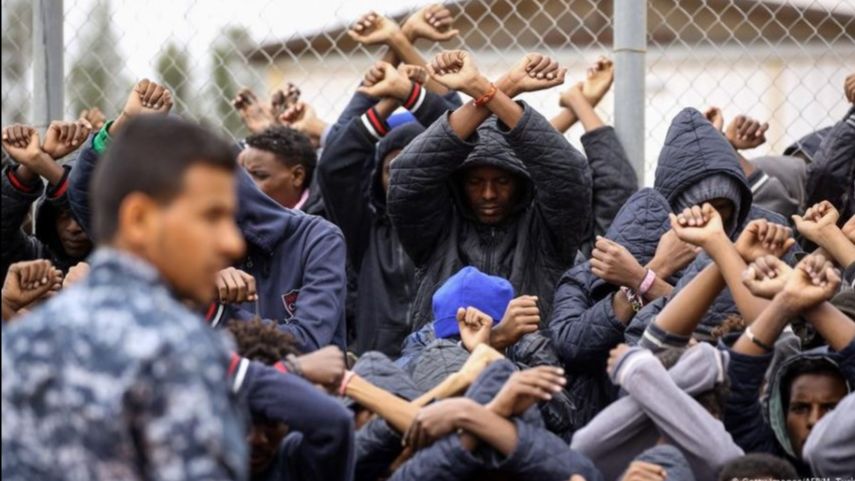Since the EU and Italy signed a deal with Libya to reduce the number of arrivals to Europe five years ago, over 82,000 people have been intercepted by the so-called Libyan Coast Guard (32,425 in 2021 alone).
After being pushed back to Libya, migrants face systematic violations that may amount to crimes against humanity. Arbitrary detention, torture, enforced disappearances, sexual abuse and rape constitute the norm in Libyan detention centres, which are largely run by militias.
Over 20,000 migrants went missing in 2021 after having been intercepted by the Libyan Coast Guard and likely sent to informal detention facilities. In January 2022, the Libyan Department against Illegal Migration violently raided an informal settlement of migrants in Tripoli and detained over 600 people in the Ain Zara facility.
The escalating violence against migrants in Libya has effects on its neighbouring countries, especially Tunisia. As reported in EuroMed Rights’ latest podcast (in French) and in our submission to the Special Rapporteur on the human rights of migrants, many migrants in Libya decide to cross the border to Tunisia to reach the cities of Sfax, Medenine and Zarzis. Over 3,000 migrants are estimated to be living in the southern regions of Zarzis and Medenine, many of whom arrived from Libya, either via the land border or after being intercepted at sea by Tunisian authorities.
No prospects in Tunisia for migrants
Once in Tunisia, the prospects for migrant communities are limited: asylum-seekers lack protection, most migrants have no way to regularise their status and unemployment is widespread. The government also imposes a fine based on the length of a person’s irregular stay in the country.
Sub-Saharan migrants are also subjected to discriminatory actions by Tunisian authorities: there has been a surge in arbitrary arrests against the Sub-Saharan community – mostly targeting students – and there are reports of collective expulsions to Libya targeting Sub-Saharan migrants who were intercepted at sea.
In Zarzis, the migrant community has been protesting since 14 February 2022 against the decision by UNHCR to evict them from shelters and diminish assistance. In this generalised situation of precarity, and without money to pay the aforementioned fine, many people attempt to cross the Central Mediterranean route to Italy – a route that claimed at least 1,553 lives in 2021.

